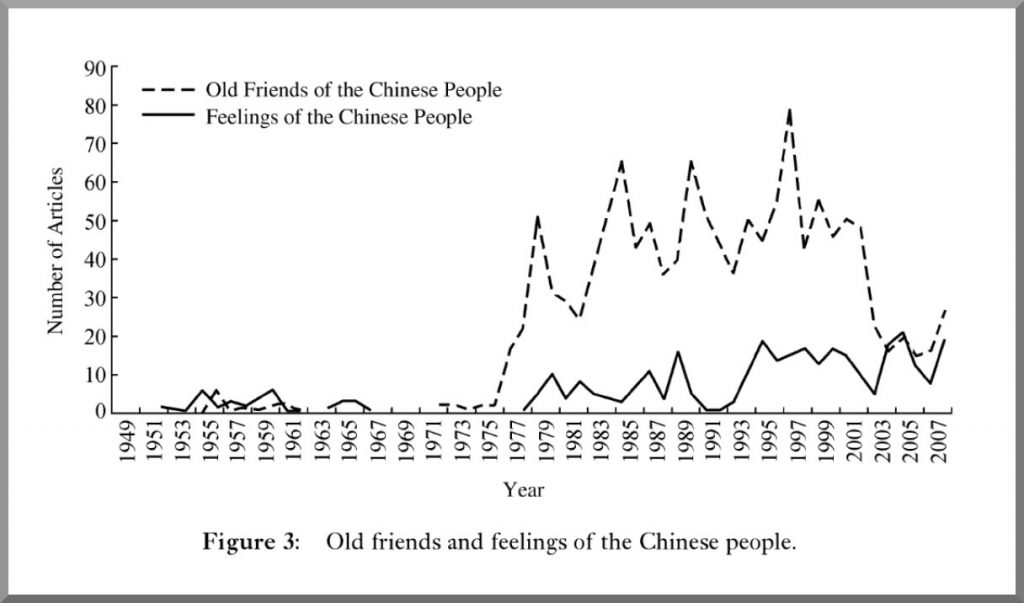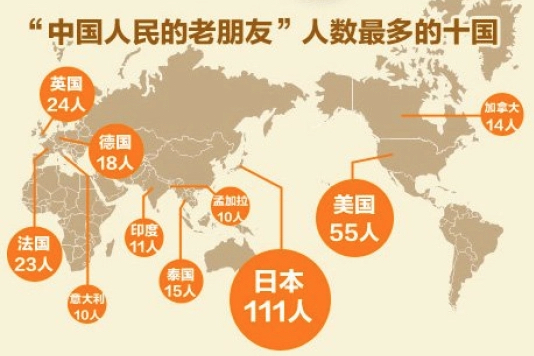THE CMP DICTIONARY
Old Friends of the Chinese People
Old Friends of the Chinese People
“Old friend of the Chinese people” first appeared in the pages of the official People’s Daily newspaper in 1956, when the honor was bestowed on the Canadian missionary James Gareth Endicott. Once an advisor to Chiang Kai-shek, Endicott devoted himself to the Communist cause with religious zeal when the Chinese Civil War resumed in 1945. A lifelong defender of the PRC regime after 1949, he spent his final years offering justifications for the killing of demonstrators by the soldiers of the People’s Liberation Army on June 4, 1989.
The CCP’s first cohort of “old friends” would later welcome the likes of American journalist turned CCP publicist Edgar Snow, while later generations included King of Cambodia Norodom Sihanouk and US presidents Richard Nixon and George Bush. But perhaps the most iconic of the living “old friends” is Henry Kissinger, the former US Secretary of State and now centenarian who paid a sudden visit to China in July 2023, agreeing that he was an “old friend” after Xi Jinping said: “The Chinese people never forget their old friends, and Sino-US relations will always be linked with the name of Henry Kissinger.”
How many “old friends” does China have after six decades? From 1949 to 2010, 601 individuals from 123 countries earned the moniker in the People’s Daily, according to statistics compiled by Southern Weekly in 2011. Before the late 1970s, they were an exclusive crowd. But after the end of the Cultural Revolution and the beginning of China’s reform and opening up, their ranks suddenly swelled. As the country sought diplomatic recognition and foreign investment, friends were all around.
Numbers dipped over China’s brief spell of isolation following the 1989 Tiananmen massacre, but soon picked up again. In the run-up to Beijing’s ascension to the World Trade Organization in 2001, the phrase “old friends of the Chinese people” reached fever pitch.

A Friend In Need
The pattern is not hard to see. Like the worst kind of friend, the party-state most reliably checks in on its lao pengyou when it wants something from them. Consider, too, the home countries of China’s “old friends,” which correspond with the country’s diplomatic wishes and concerns. With over 100 “old friends,” China’s historical enemy Japan is home to more than anywhere else in the world — by a long shot. Coming in second, with half that amount, is Beijing’s more recent great-power rival, the United States of America.
Why are there more “old friends” where friendship most eludes China? Because these places are precisely where friends are most useful. They can be summoned for meetings to undermine their own government’s current foreign policy tack, for example — think Kissinger back in July 2023, some might say. Or they can serve as a symbolic gesture that Beijing is ready for rapprochement with their home country.

In 1970, Mao Zedong invited Edgar Snow to join him in Tiananmen Square for National Day celebrations. This was intended to telegraph that Mao was ready to line up with the US against the Soviet Union, but Washington missed the signal. China’s “old friend” Snow was already a nobody back home. It took an invitation for the US ping-pong team to visit Beijing the following year to finally get the message across.
In the use-or-no-use world of the CCP’s “old friends” mentality, there are two paths for the foreigner who speaks out: either be useful to the Party and become an “old friend of the Chinese people,” or oppose it and become a “foreign force” (境外势力).
The 1990s glory days of “old friends of the Chinese people,” when the phrase soared up nearly to the century mark in terms of per-article uses in the CCP’s People’s Daily, may now be well in the past. But the title is still very much alive — and might be experiencing a resurgence. When Microsoft founder Bill Gates met with Xi in June 2023, he was welcomed as an “old friend.”
The latest visit by the timeworn Kissinger came just weeks later. And the next month, in a letter to the grandson of Joseph Stillwell, Xi also remembered the US Army General — whose positive view of the Communists caused him to fall out with Chiang Kai-shek and be replaced — as an “old friend of the Chinese people.” If past usage is any indication, this seems to suggest that Xi is ready to mend fences.

Ryan Ho Kilpatrick
The CMP Dictionary
C
D
F
G
M
N
P
S
- Scaling the Wall
- Science
- Second-Generation Reds
- Security
- Seeking Progress in Stability
- Seeking Truth From Facts
- Self-Revolution
- Seven Bottom Lines
- Six Adheres
- Smart Governance
- Sneaky Visit
- So-Called
- Socialite
- Soft Resistance
- Soul and Root
- Soundless Saturation / Quietly Nourishing
- Sovereignty
- Speaking Politics
- Streamlining Services
- Strong Cyber Power

